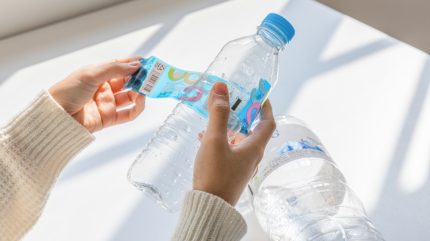
More than three-quarters of European consumers are concerned about the environmental impact of packaging, according to a new consumer survey by Pro Carton.
The research, which gathered responses from 5,000 shoppers across the UK, France, Germany, Italy, and Spain, highlights growing demand for sustainable packaging options and greater transparency from brands.

Discover B2B Marketing That Performs
Combine business intelligence and editorial excellence to reach engaged professionals across 36 leading media platforms.
The survey, carried out in late 2024 and published in March 2025, shows that 76% of respondents now actively consider the environmental effects of packaging when making purchasing decisions.
Over half said they are more likely to buy a product if the packaging is made from cartonboard or other recyclable materials.
Cartonboard preferred for recyclability and biodegradability
Consumers continue to favour paper-based packaging, with 60% saying they view cartonboard as the most environmentally friendly material. Recyclability remains a key consideration: 81% believe packaging should be easy to recycle, and 77% think it should also be biodegradable.
In contrast, plastic packaging remains unpopular, with only 9% of respondents considering it a sustainable choice.

US Tariffs are shifting - will you react or anticipate?
Don’t let policy changes catch you off guard. Stay proactive with real-time data and expert analysis.
By GlobalDataThe findings also suggest that younger shoppers are particularly engaged in sustainability issues.
Among 19- to 29-year-olds, 59% said they actively try to avoid plastic packaging, compared to 43% of those over 60. However, confusion persists around what qualifies as truly recyclable or compostable, with many calling for clearer labelling.
Brands under pressure to improve packaging sustainability
The majority of consumers (74%) believe brands are not doing enough to offer eco-friendly packaging. There is also widespread support for government intervention: 70% say authorities should introduce stricter rules on packaging materials and require companies to disclose their environmental impact.
This shift in consumer expectations is placing increased pressure on retailers and manufacturers to move away from single-use plastics and towards recyclable, renewable, or compostable alternatives.
More than half of respondents said they would switch brands if a competitor offered more sustainable packaging.
Eco packaging and product appeal closely linked
Packaging design continues to influence buying decisions. Nearly two-thirds of respondents said they are more likely to choose products with packaging that clearly communicates its sustainability credentials.
This trend is particularly strong among environmentally conscious consumers, with many stating they feel a personal responsibility to reduce packaging waste.
However, the survey also found that many consumers feel misled by environmental claims on packaging. Almost half said they struggle to trust “green” labels, indicating a need for stricter standards and third-party verification to build trust in eco-packaging claims.
As sustainability grows in importance for European shoppers, the findings suggest that brands prioritising recyclable and biodegradable packaging could gain a competitive edge—while those slow to adapt may fall out of favour.





